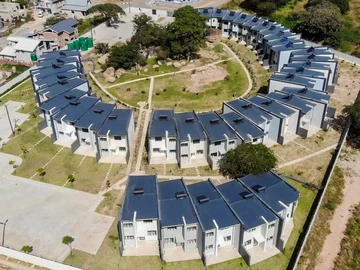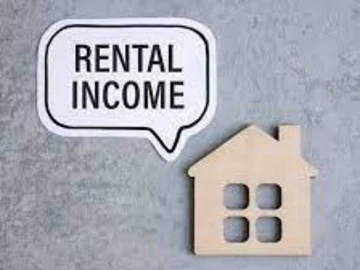Talking about literally coming back from the brink of death, Zimbabwe's economy has been on a rollercoaster ride, with inflation soaring and currency fluctuations leaving investors reeling. But amidst the turmoil, one sector has defied the odds and continued to thrive: the property market. Like a phoenix rising from the ashes, Zimbabwe's property market has proven to be a beacon of hope, attracting investors and fueling growth. What's behind this remarkable resilience? Let's dive in and explore the factors driving Zimbabwe's property market boom.
Over the years, there have been moments where Zimbabwe's economy has teetered on the edge of collapse. The hyperinflation era in Zimbabwe, where the currency became virtually worthless and people had to deal with astronomical numbers and frequent re-denominations, is a stark reminder of the country's economic struggles. As a result, financial assets like pension funds and investments in companies like Old Mutual were severely devalued, and people's savings and retirement funds were essentially wiped out. This experience has led to a lack of trust in financial assets and a preference for tangible assets like real estate, which is seen as a more stable store of value.
Despite the challenges, Zimbabwe's property market has shown remarkable resilience. One key factor driving this growth is the listing of companies like Westprop, which has a listed book value of $200 million (Westprop Annual Report 2024) and an ambitious target of building over 1 billion bricks across various projects (Westprop Annual Report 2024). With 55% of institutional investments, including pension funds and insurance companies, stored in real estate (Zimbabwe Investment Authority), it's clear that investors have confidence in the sector. Additionally, smaller players like Turnberry Property Developers are catering to bespoke clusters within towns, providing affordable housing options for many Zimbabweans.
The property market's boom can also be attributed to the country's dollar-based economy, with 80% of transactions conducted in US dollars (Reserve Bank of Zimbabwe), making it an attractive market for foreign investors. With a 20% annual growth rate in 2024 (Zimbabwe Real Estate Association), the sector is poised for continued growth. Furthermore, Tigere Real Estate Investment Trust has seen a 600% return on investment since its IPO (Tigere REIT Annual Report 2024), demonstrating the attractive returns in the property market.
In conclusion, Zimbabwe's property market has defied the odds and continued to thrive despite the country's economic challenges. With developers like Westprop and Turnberry Property Developers driving growth and a preference for tangible assets like real estate, the sector is likely to continue booming in the foreseeable future. The statistics paint a clear picture of a thriving Zimbabwean property market in 2024, driven by institutional investments, annual growth, and ambitious development plans. With less than 5,000 registered mortgages (Zimbabwe National Statistics Agency) and an urbanisation rate of 4.5% (United Nations Development Programme), the sector is poised for continued growth and development
 Continue with Facebook
Continue with Facebook
 Continue with Email
Continue with Email














